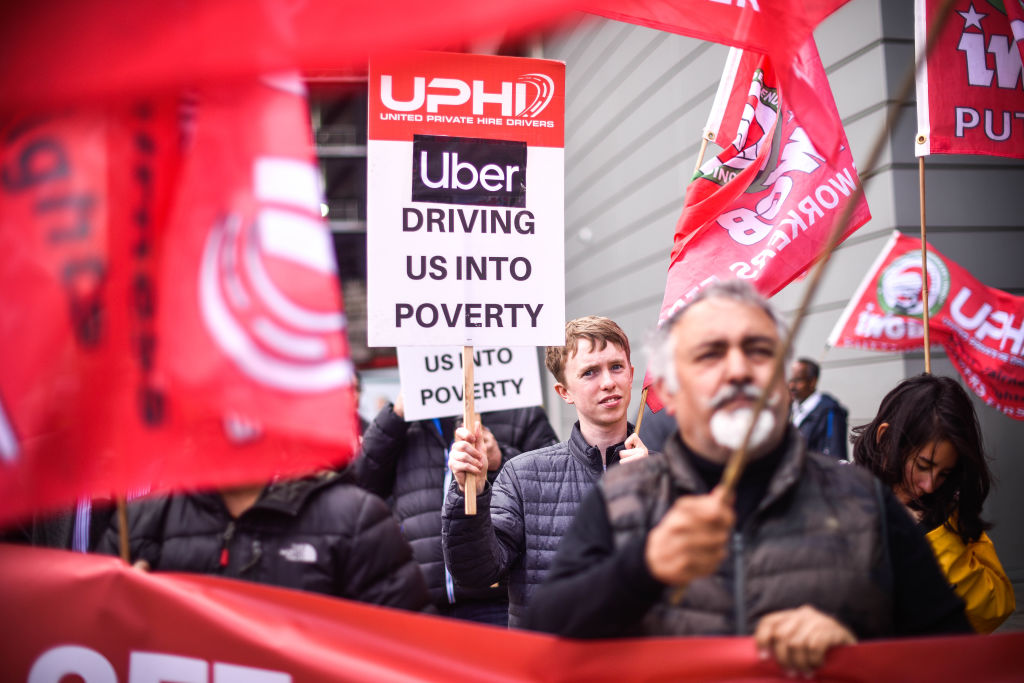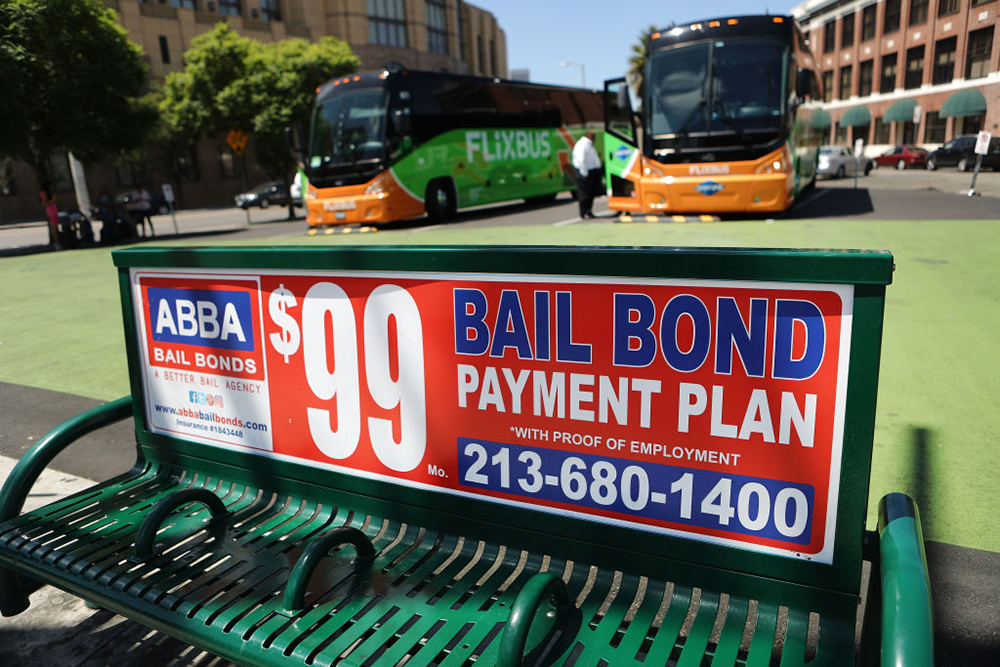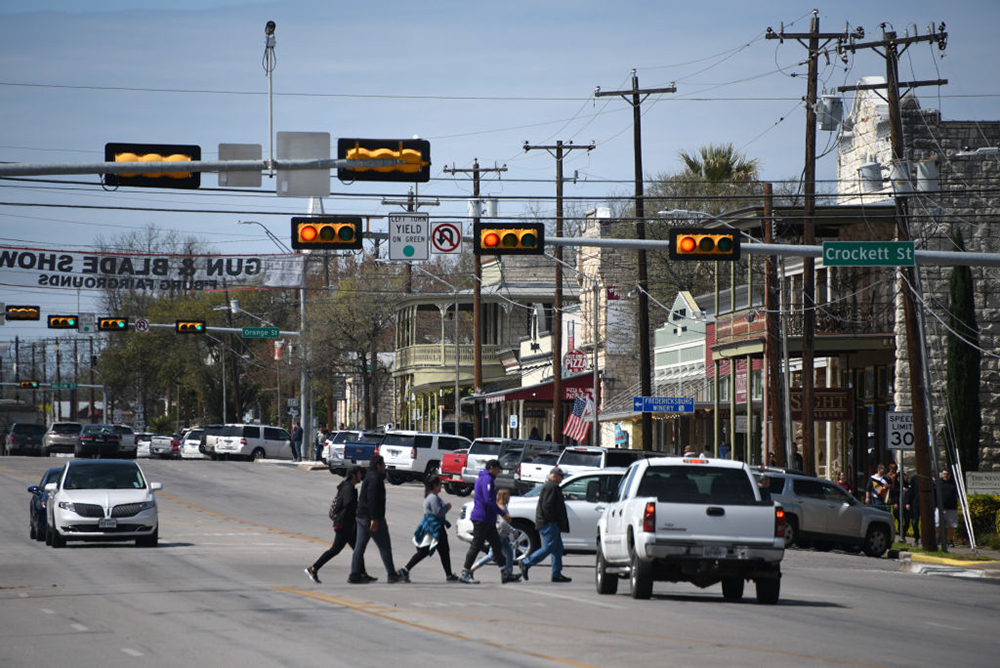On May Day, the New York Times’s Farhad Manjoo published an op-ed lambasting the approaching Uber initial public offering as a moral stain on Silicon Valley: “In the years since [its founding], Uber skirted laws and cut corners to trample over regulators and competitors. It accelerated the start-up industry’s misogynistic and reckless hustle culture. And it pushed a frightening new picture of labor — one in which everyone is a contractor, toiling without protection, our hours and our lives ruled by uncaring algorithms in the cloud.”
Uber executives’ plans to take the company public on Friday have only exacerbated the situation, so Uber drivers across the country have pledged to log out for 12 hours beginning at noon on Wednesday. Drivers and their supporters also plan to protest in front of the Uber headquarters in downtown San Francisco.
Get Talk Poverty In Your Inbox
For months, drivers have pointed to the inequities between what they earn driving, which often calculates to below minimum-wage after taxes and expenses, and the billions that executives are projected to reap once the company goes public. Silicon Valley technology website TechCrunch reported in April that Uber is seeking up to $100 billion in valuation, one of the biggest such valuations in California history.
Among those cashing in on the I.P.O. are Uber’s former CEO and founder Travis Kalanick, who was forced out in 2017 for alleged internal conflicts and poor management. Kalanick could make as much as $9 billion, while venture capitalist Matt Cohler could pocket about $11 billion, and founder Garrett Camp may make $6 billion.
While driver protests have happened before, such as the strike that saw U.K.-based drivers withdraw their labor in October 2018, the Uber strike has expanded to stretch across the world in cities such as Los Angeles; Nairobi, Kenya; and Sydney, Australia, where drivers plan to strike for at least part of the day on Wednesday. City agencies such as Bay Area Rapid Transit are encouraging potential riders to utilize public transit as an alternative, and both the San Francisco Taxi Drivers Alliance and New York Taxi Driver Alliance are joining the protest out of a sense of solidarity with their rideshare counterparts.
Mostafa Maklad, an Uber driver in San Francisco and organizer with Gig Workers Rising, who is originally from Egypt, points out the little-known fact that the Saudi Arabian royal family could stand to gain the most from the Uber I.P.O. through direct investments and holdings. “Most Uber drivers in San Francisco are from Yemen,” says Maklad. Prince Mohammad bin Salman, as Saudi Arabia’s minister for defense, has spent billions on an air campaign targeting Yemeni rebel groups, which has led to civilian casualties. “All of that money will go towards the [Yemeni Civil War], which has killed hundreds of thousands.”
In recent months, rideshare drivers with Gig Workers Rising, a project of the grassroots labor organization Working Partnerships USA, have begun pushing back against what they allege are abuses of their “independent contractor” status. This spares the company from having to provide benefits or other labor law protections to drivers.
Maklad said, “Uber has always looked at drivers as just a number or an application on a paper.”
The drivers are also agitating for more transparency around payment models, an increased wage commensurate with the Bay Area’s high cost of living, benefits such as workers’ compensation and paid time off, and a role at the bargaining table in the workplace. Their organizing comes on the heels of a rare victory, when drivers in New York City won a minimum pay rate in December as part of the City Council’s attempt to regulate ridesharing companies under the Taxi and Limousine Commission and offset the gridlock that extra cars on the road cause.
“Wages have actually gone down in years. It’s expensive year-after-year. There’s no increase [for inflation] like other workers, no benefits,” Maklad said. After Uber made changes to its payment structure in October, drivers said their overall take-home pay actually decreased. Uber told a number of media outlets at the time, such as Business Insider, that it did this to keep earnings more consistent.
Other grievances Maklad pointed to include the lengths Uber executives seem to go to assuage their customers at the expense of their drivers. He highlighted one recent case in Los Angeles, in which a passenger stabbed a driver, citing the risks that rideshare drivers take when they pick up customers. Other cases include the oft-made complaint about Uber’s passenger-skewed ratings system, and that until recently drivers could only contact Uber through an email system.
While Maklad and other drivers allege that Uber shirks responsibility for passengers’ behavior, they also allege that Uber itself is less than forthcoming when it comes to dealing with its drivers, despite the critical role drivers play in ensuring the operation runs smoothly. “We have the right to know much money we’re going to earn before we pick a passenger. We have the right to know who we’re picking up,” said Maklad. “It seems any passenger can commit a crime and get away with it because there’s no way to figure out who a passenger is [if anything goes wrong]. Uber wants to keep everything confidential.”
Uber drivers have been accused of discriminating against passengers, but that doesn’t undermine their very real fears about assault and harassment, highlighting the failures of a platform that benefits neither driver nor rider.
In contrast, Maklad said, drivers’ accounts are automatically deactivated after they’ve been in three car accidents, regardless of whether the accidents are the driver’s fault or not. Maklad says the only course of action drivers can take is to email the company. He pointed to an incident in which one driver’s account was deactivated after his third accident — despite his not being at fault — after which drivers tried to deliver a petition to Uber headquarters in support of the driver to demonstrate their frustration with Uber’s policy.
Maklad said, “We were turned away at the door. Uber sent its security guard to tell us that they don’t accept physical deliveries, and that we had to email them.” The San Francisco Examiner reported that a guard tackled one driver/supporter.
“They refused to respond to his message, even though there were 8,000 signatures in support,” he said.
“Their business model is to find a way to avoid being responsible for employees,” said Maklad. “But we’ve never been treated like independent contractors.” A court ruling last year challenged the practice of labeling people who appear to be employees as independent contractors in California. Uber’s quite familiar with this issue: a current case concerning misclassification of drivers in Massachusetts and California is making its way through a San Francisco court, which has already seen Uber pay out $20 million in settlement fees. Another judge ruled that because the plaintiffs drove for Uber BLACK, the limousine side of Uber, and were able to have free rein over how they structured their time and when they took breaks, they couldn’t be considered employees and thus weren’t entitled to protections under the Fair Labor Standards Act, which doesn’t apply to independent contractors.
Wednesday’s strike looks to have a far-reaching impact beyond that of just gig workers. There is a sense that the circumstances surrounding the strike extend beyond transit, as the exorbitant amounts that executives stand to receive are reflective of the accelerating income inequality gap between workers and bosses. One U.K.-based organizer told the Philadelphia Inquirer, “Uber drivers were told they are unskilled, stuck in poverty, and will never stand up. Now, a global network for drivers are working together to fight back!”











